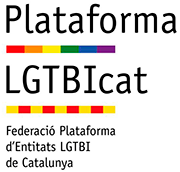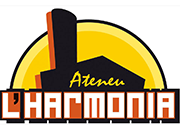NY Firefighters Refuse to Play Against Gay Team
By Chris Korman and Cyd Zeigler jr.
Members of a rugby team made up at least partially of New York City firefighters, including one featured on the cover of Sports Illustrated, refused to play a game against the Gotham Knights gay rugby team after one of the firefighters asked the gay team if they could guarantee that none of their players were HIV-positive.
As Gotham team leaders went over strategy prior to their quarterfinal match against the team, called Rock B/Fire, in the 30th Annual Rockaway Rugby Sevens Tournament in Queens on Saturday, June 17, a player from the Fire team approached the Knights, said Eric Merfalen, a 26-year-old back for the team.
“He came up and said something like, ‘I don’t mean to be a jerk, but . . .’ and then he asked if we could all confirm that we were not HIV positive,” said Merfalen, who was standing with the group. “He asked us several times.” Merfalen was the only member of the Knights who agreed to have his name used for this story. He spoke with Outsports shortly after the incident, before Gotham club members were asked not to speak to the media.
Outsports was able to confirm through other sources at the tournament that Mefalen’s teammates support his version of events and are angry about what occurred.
FDNY spokesperson Jim Long said the Rock B/Fire team was not acting in the name of the Fire Department. "This is not an FDNY-sponsored event or function," Long said. "The department in no way would sanction or condone any discrimination of any person, based on preference, race or medical history."
A photograph obtained by Outsports shows one of the Fire team players approaching eight Gotham players and talking to them before their scheduled match; Merfalen is one of the Knights in the photo. After speaking with the Gotham players, the Fire player reportedly proceeded to the official’s tent and was followed by Knights acting captain Tony Birks. What happened next remains unclear, except for the fact that the Fire team decided to forfeit the match.
The Fire player who approached the Knights wearing jersey No. 5 was identified by tournament director Chris McCann as Phil Tufano, the secretary of the Rockaway Rugby Club and a lieutenant with FDNY ladder 143 based in Queens. In addition to hosting the tournament, the Rockaway Rugby Club fields multiple teams, including one consisting of firefighters, referred to on their Web site as FDNY, of which Tufano is a member.
Tufano was featured on the Dec., 24, 2001, cover of Sports Illustrated, wearing an FDNY football uniform, as a special tribute to New York firefighters in sports following the Sept. 11 terrorist attacks. The cover title reads, "Everybody's All-Americans."
Tufano declined to speak with Outsports but said through tournament chairman John McCann that he had given Knights assistant coach John Dent his “reasons spelled out in plain English.” Dent and several other Gotham Knights players have refused repeated requests for interviews since club president Alex Fallis asked members not to speak with the media.
Members of Gotham believed that the team they were supposed to play in the quarterfinals was Rockaway's FDNY squad. Merfalen said he thought the letters FDNY appeared on the team’s shirts. However, McCann said the Fire team was not wearing FDNY shirts, was a late replacement for a team that did not show up, and consisted of a group of firefighters and non-firefighters.
McCann, the chairman, said he believed the Rock B/Fire team cited health concerns as its reason for conceding the match.
“I wasn’t told directly, but I heard it was health issues,” he told Outsports. “They were going to play but Gotham gave the team notice that some players were HIV-positive after being asked.” It is not clear whether the Knights told the Fire team that there were HIV-positive players on their team, or that they could not guarantee that there were not.
It is not known if Tufano asked any teams other than the gay team if they could guarantee that their players did not have HIV or any other disease.
After team Fire forfeited their game, the Knights opted to leave the tournament.
"I wasn't at the tournament, but I heard this incident wasn't pretty," Rockaway Rugby Club Vice-President John O'Connor told Outsports. John McCann added that he told the Knights he "was disappointed that the situation occurred and I invited their team back to next year's tournament."
Last month, the Gotham Knights RFC hosted the Bingham Cup, the largest gay rugby tournament in the world, held every other year.
The incident with the Fire was not the only one that disturbed members of the Knights. Merfalen said he heard his teammates referred to as “girls” during the tournament, and that during a warm-up someone yelled to the team, “I guess they didn’t shave their legs today.”
The legality of Tufano's inquiry is in question. Felix Lopez, director of legal services at GMHC, said that because Tufano is an officer of the Rockaway Rugby Club, and because the club holds itself out with events and services offered to the public in public places, there may have been a violation of the public accommodations clause of the federal Americans with Disabilities Act. Whether the Gotham players have HIV is irrelevant as the law protects people who have or are perceived to have a disability, within which HIV is included.
“Even if it wasn't illegal, it’s certainly ignorant,” said Noel Alicea, a spokesman for the Gay Men’s Health Crisis. As HIV is federally protected health information, no player was compelled to answer Tufano's questions. In addition, many rugby organizations have rules that are aimed to prevent discrimination against HIV-positive players.
It clearly would not be legal for Tufano or any of the other firefighters on the Fire rugby team to inquire about the HIV status of a person they were attempting to save in the line of duty.
According to a 1995 study by the Centers for Disease Control and Prevention, the chances of an NFL player transmitting AIDS through blood-to-blood contact is 1 in 85 million. In any sport, the study concluded, the chances are miniscule. No verified case of HIV transmission through sport has ever been reported.
Firefighters, however, submit themselves to high-risk activity on the job every day. A University of Arkansas study has showed that firefighters often die younger from stress. They are subjected to toxic fumes that can cause long-term health problems. On the job, approximately 100 firefighters die every year.
There is only one reported incident in all of sport, during a 1989 Italian soccer match in which two players collided and sustained head wounds, of possible HIV transmission, though team physicians were not able to determine if HIV had been transmitted during the collision.
“Both of (the players) would have to have a large wound with copious blood transfer,” Dr. Keith LaScalea, a physician at Weill Cornell Medical Center, told Outsports. “HIV is not a hardy virus.”
According to Lynn Schulman, a spokesperson for GMHC, the issue of HIV status sounds like a ruse based on outdated information.
“When you say, ‘I’m not going to play against someone who is gay,' it’s a stigma issue,” said Schulman. “It’s a front. It’s not a legitimate issue, just like it’s not legitimate to say I’m not going to play with someone just because they wear glasses.”
Schulman said that being concerned about contracting HIV from a person simply because they're gay is backward.
While there still would be virtually no risk whatsoever, a black player could pose the same perceived risk as a gay man. According to the New York City Department of Health and Mental Hygiene, there are almost as many reported cases of Black men in New York knowingly living with HIV as there are men who are confirmed to have gotten the disease through homosexual sex (26,000 versus 27,000, as of June 30, 2005).




